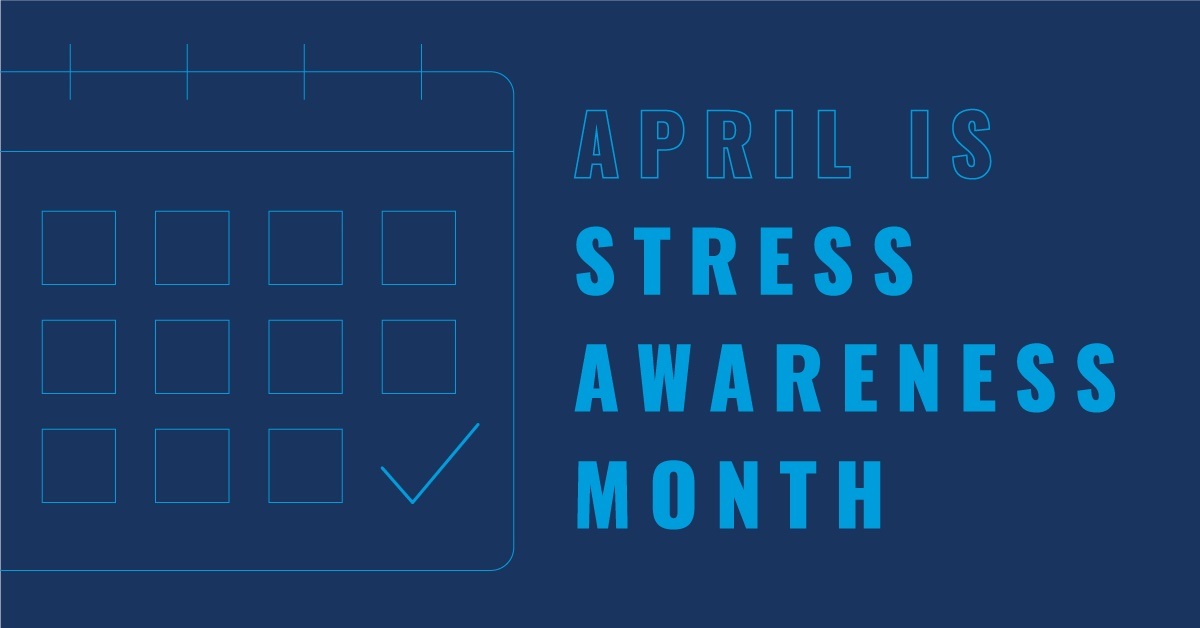April is Stress Awareness Month, an observance dedicated to increasing public awareness about the causes and cures for today’s stress epidemic. In this blog, I want to explore the meaning of stress, what contributes to it, how to recognize it and some practical guidance for managing it effectively.
Understanding stress
There is no universally accepted definition of stress, but it’s most often described as physical, mental or emotional strain or tension. Stress is a personal reaction based on an individual’s perception of being threatened, overwhelmed or ill-equipped to handle a given situation. Although everyone experiences some type of stress in their lives, what’s stressful to one person may not be to another. Because stress is so highly personalized, the most effective solutions for addressing it tend to be equally personalized.
People most often feel stressed because of external factors. These include things going on in the broader world —such as geopolitical tensions, violence and public health risks — or in our personal environment, like job changes, the loss of a family member or relationship struggles. Mundane, everyday stressors can include personal finances, hectic family schedules, pressing work deadlines or what to make for dinner. Sometimes, we are the cause of our own stress; internal stress stems from inner conflict and may be associated with our values and thoughts about ourselves and the world around us.
According to the American Institute of Stress, there are four main types of stress:
- Acute: When you feel your body is in fight, flight or freeze mode.
- Chronic: Associated with daily living costs, such as bills, jobs and chores.
- Distress: Negative stressors, like divorce, work difficulties and financial problems.
- Eustress: Tied to exciting life events, such as marriage, a job promotion, having a baby or graduating from school. (Yes, stress can sometimes be healthy and positive!)
Range of symptoms
Regardless of the type or source, stress can significantly affect overall well-being. Its symptoms may manifest as physical (your body’s response to stress), mental (your thoughts and feelings about stress) and behavioral (things you do when you’re stressed). Here are some examples and warning signs:
Coping strategies
Given the seriousness of these symptoms, leaving stress unchecked can have a highly detrimental impact on your physical, mental, emotional and spiritual health. The good news is that stress is something that can be managed. Here are some common approaches that you can personalize to fit your own individual needs and experience:
- Establish realistic expectations: Healthy behaviors during times of stress include simplifying things wherever possible, setting appropriate boundaries for yourself and others, and following regular and familiar routines.
- Cultivate positive skillsets: When you’re in the thick of it, it really helps to have strong tools for facing stress head on. Skills like time management, organization, goal setting, problem solving, communication and balance prove to be key when times get tough.
- Reshape your mindset: Even if you can’t change something, you can change the way you think about it. Thoughts are a powerful ally in addressing stress. Remember that things will not always go perfectly or according to plan, it’s okay to laugh sometimes, and not everything is a personal affront. Challenge the “shoulds” and “musts,” and work to address negative thoughts head-on, before they become increasingly present and more problematic.
- Practice self-care: Taking care of yourself goes far beyond the occasional bubble bath or spa treatment. It means eating right, exercising regularly, getting enough sleep, practicing relaxation and meditation, making time for socialization and fun activities, taking planned breaks, and conducting regular wellness checks. Self-care is critical to keeping your stress level at bay.
- Reach out for help: There is no shame in asking for help when you’re feeling overwhelmed. Utilize your support system. Whether it’s at work, home or elsewhere, find ways to share the load and relieve some of the burden you’re carrying. If your stress feels unrelenting and overbearing and impacts daily functioning, it might be time to seek help from a professional who can provide additional support and clinical assistance.
Reducing stress in claims
At Sedgwick, our approach is rooted in the philosophy that caring counts. We aim to deliver our services with empathy and eliminate complexity from the claims process, so we can alleviate the stress of those experiencing an unexpected adverse event. It’s one of the reasons employers, insurance carriers and other leading organizations trust Sedgwick to take care of their people when they’re most vulnerable.
In my role as a member of Sedgwick’s managed care team, I provide behavioral health solutions to support employees of the company’s workers’ compensation clients in overcoming psychosocial barriers affecting their recovery from injury and their return to work. Our behavioral health specialists are highly skilled in providing holistic care and recognizing the stressors that may impede an employee’s path to optimal recovery and productivity. By educating and coaching injured workers on effective ways to manage their stress, we’re able to make a meaningful difference in their lives at a time when caring counts most.
> Learn more — visit stress.org, and watch and read about Sedgwick’s clinical behavioral health solutions

